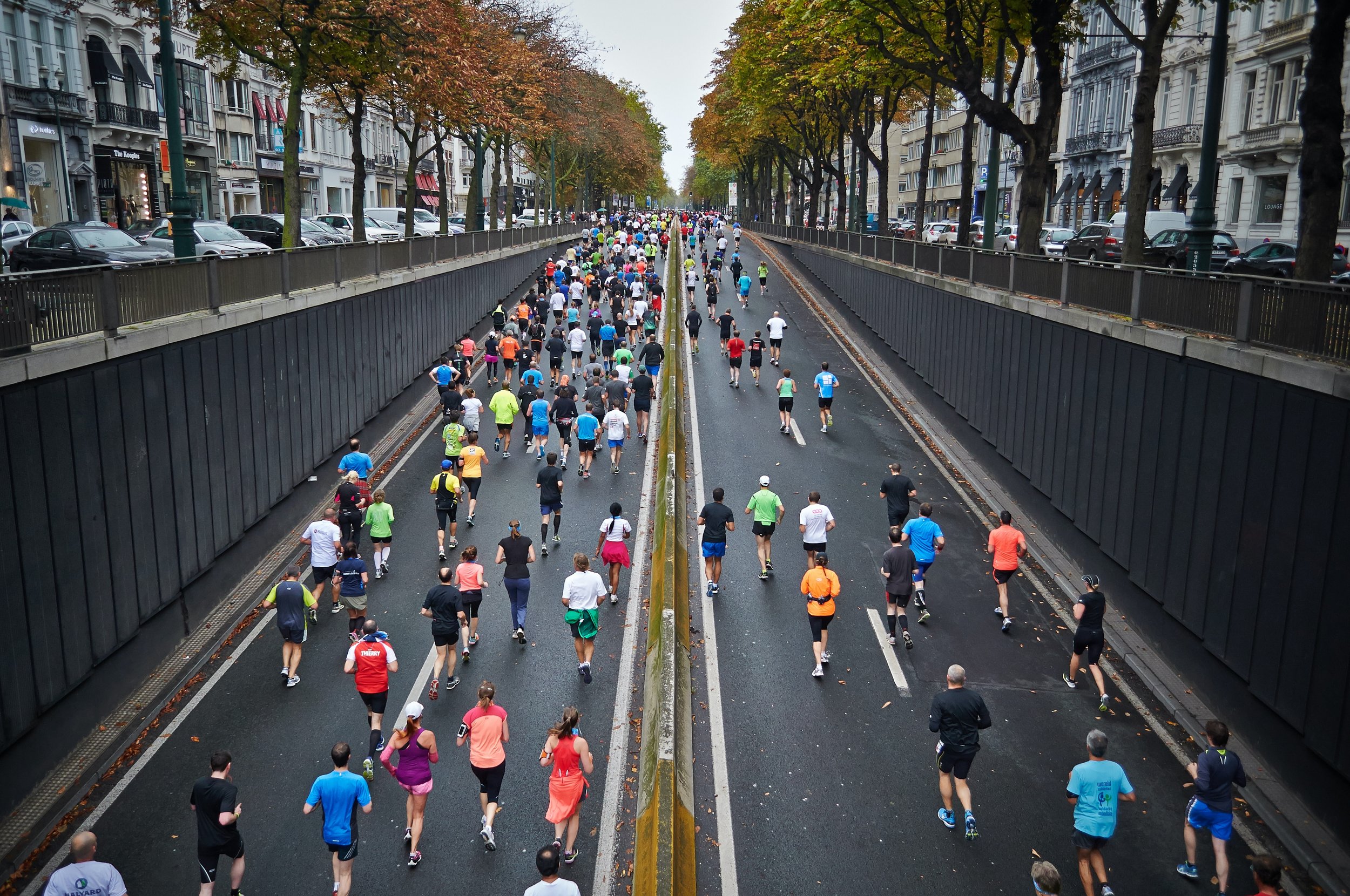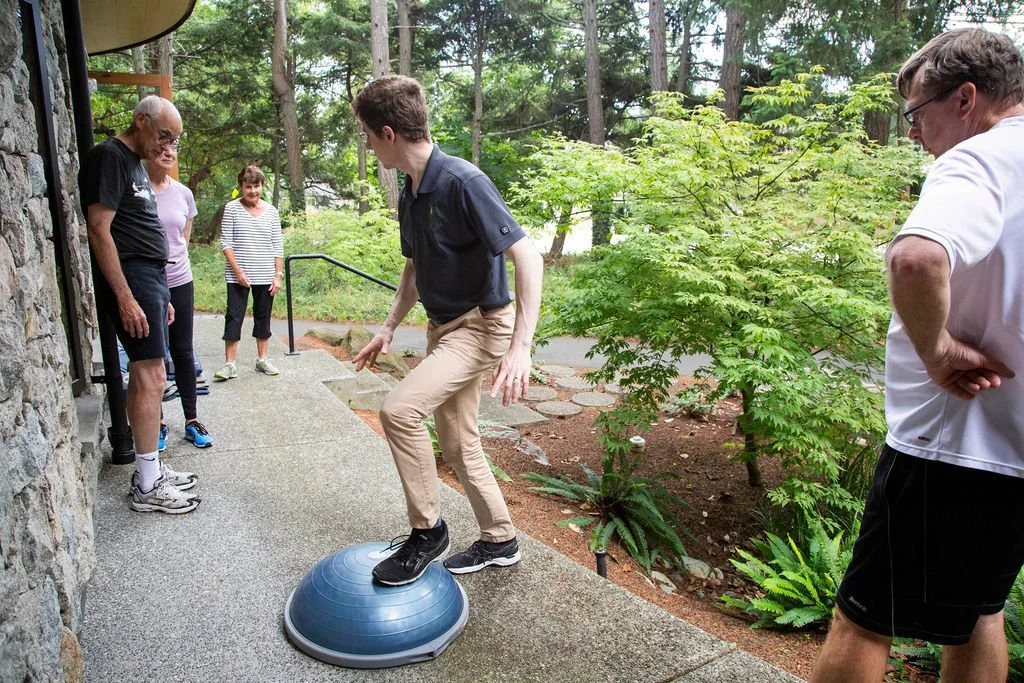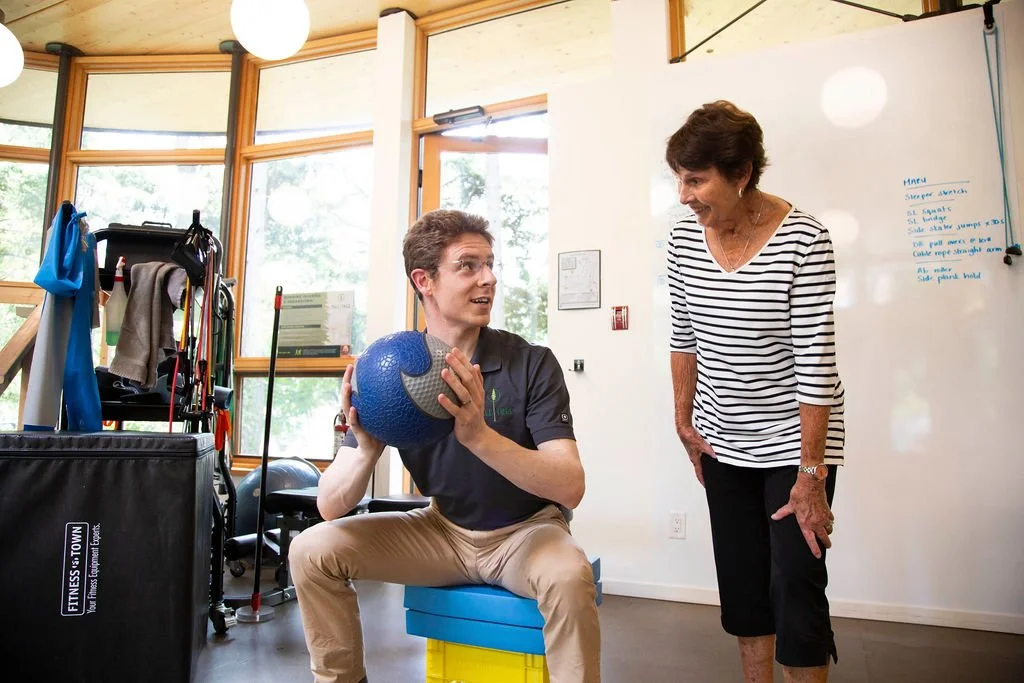Five Tips for a Successful Marathon
How to prepare and train for your best race day ever
There’s nothing like the exhilarating atmosphere of a marathon. It’s a great event that brings out the whole community in support of healthy living, and often valuable fundraising efforts too. Whether you’ve run a dozen marathons, or this marks your first race, here are a few tips to get you across the finish line in fine form.
Eat to run - rather than running to eat
Food may be the last thing on your mind while you’re actually running, but how you eat in the two weeks leading up to a marathon will have a big impact on how you perform in your race.
There are numerous theories about pre-race nutrition, but they all tend to involve some key basics: eat clean protein (organic chicken, fish, legumes, nuts and seeds), lots of veggies, and whole carbs like brown rice, quinoa and potatoes. Avoid inflammatory foods like anything deep-fried, alcohol, and red meat.
More than anything, create a consistent, healthy schedule for the next fortnight, and stick to it. The last thing you want to do is throw in something new the night before you run, and end up with a sore stomach.
If you're curious about the topic, and specifics like carb loading, the Vancouver BC-based holistic nutrition company Eat2Run is a great resource for running nutrition. Alternatively, Tall Tree Health’s Dr. Marita Schauch can also give you the naturopath’s perspective on proper race nutrition, as she's a marathoner herself.
“How you eat in the next two weeks leading up to a marathon will have a big impact on how you perform in your race.”
2. Hydrate, hydrate, hydrate
You’ll hear this everywhere, but its importance cannot be understated: if you want to perform well and enjoy your marathon, you need to stay hydrated.
When you start a race dehydrated, or grow dehydrated by not drinking enough while running, your blood volume drops. This makes it more difficult for your body to transfer the heat you’re generating while running, and causes your heart to beat faster. And when your heart’s beating faster just to sustain your circulatory system, you’re wasting energy that could be used for your run.
This article from Runner’s World provides great guidelines for both the best volume of water to consume, and also the best time at which to consume it (hint: you need to pay attention to hydration long before you make it to the start line).
3. Taper, even if it feels weird
If you’ve ever participated in any kind of running group, chances are you’ve heard of tapering. For two to three weeks prior to any race, a healthy practice is to reduce your workouts gradually so that you end up doing a fraction of the distance for which you’ve been training.
Even though the reason for tapering is fairly obvious – resting your legs will give you added juice on race day – the experience of it is often quite strange for runners. You’ve likely just spent three months running a minimum of twice a week for some significant distances, and now you’re being asked to run less than you did when you started.
Don’t fret: if you stick to your program and start the taper a few weeks out, you won’t lose any fitness. You’ll simply be creating some reserve stores of energy to carry you over the finish line on race day.
4. Sleep well, sleep often
Sleep, like hydration, can’t be underestimated. When we’re asleep, our bodies go to work repairing themselves. When we’re on our feet for dozens of kilometres a week, that recovery time is crucial.
Also like hydration, sleep isn’t just something to think about the night before your race. In fact, some studies have shown that the amount of sleep one gets in the week leading up to a race – particularly the sleep you have two nights before race day – is more significant than how you sleep the night before.
On race night you’re bound to have some jitters and nervous excitement, but rest easy. Start honing your sleep schedule now, and you won’t have anything to worry about.
5. Take time to recover
Recovery doesn’t just happen after the marathon is over, instead it’s an ongoing practice throughout your training. Visiting an RMT, chiropractor or physiotherapist – or all three – at regular intervals throughout your training can help your muscles and joints recover faster after tough workouts. And there’s nothing sweeter or more relaxing than a post-race trip to the massage therapist. After all, you’ve earned it.
A regular physio appointment or massage will also help with your long term health and fitness, by supporting proper alignment in the body, and muscle and joint health. If you have visions of running late into life, creating a maintenance plan with a practitioner might be the best move you can make. At Tall Tree Health, our Registered Physiotherapists are leaders, educators and innovators in their field, and you can expect the highest standard of care.
Good luck with your marathon, from the start of your training to crossing that finish line!

































